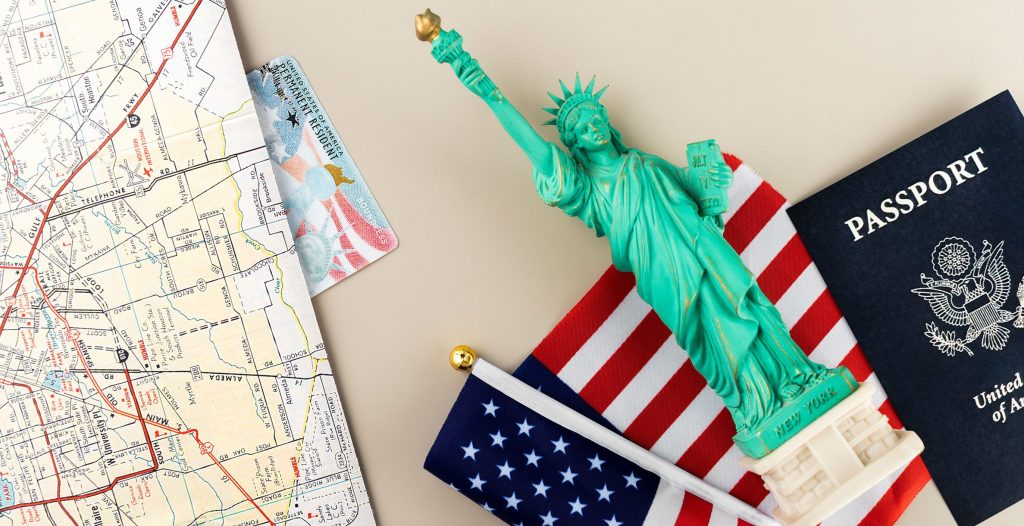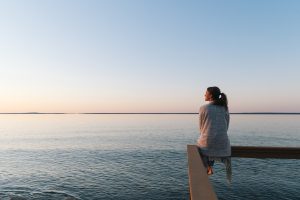Easiest Countries to Get Permanent Residency in 2024

In today’s globalized world, obtaining permanent residency in a foreign country can open up a myriad of opportunities. Whether for career advancement, educational prospects, or a higher quality of life, many individuals and families are seeking countries with accessible and straightforward residency processes. In 2024, several countries stand out for their relatively easy paths to permanent residency. This article explores the top destinations where achieving permanent residency is not only feasible but also streamlined and efficient. We will delve into the specific requirements, benefits, and overall processes that make these countries attractive to expatriates.
Portugal
Overview of Portugal’s Golden Visa Program
Portugal’s Golden Visa, one of the most straightforward and successful systems for permanent residency in the world, needs no introduction. Initiated in 2012, it works on the classic minimum investment formula (that is, ‘invest, reside permanently’). You need to invest at least €280,000 (reduced to €500,000 if property is in the so-called ‘Pool’ area; without specifying what criteria qualifies properties in the ‘Pool’) in real estate, plus an added amount (differentiated for each type and location of property) as additional costs. But your investment need not be limited to estate. You can opt for scientific research, job creation or cultural heritage (arte and architecture), as long as it meets with approval. The entire process is straightforward and can be as short as five to six months, from the initial application to the issuance of the Portugal residency visa. No wonder Portugal sits at the top of the list of the chosen destinations for those seeking stability and cultural diversity in Europe.
Benefits and Lifestyle in Portugal
These include a high quality of life, a low cost of living compared with other Western European countries (but perhaps somewhat higher than specifically expat-favoured Portugal), an appealing climate and physical environment, rich cultural heritage, relatively high access to services (health care, education, etc), visafree travel in the Schengen Area for permanent residents, and a welcoming population. In combination, the various incentives available (including the simple fact that people like Portugal in the first place) and the easy access to permanent residency, all add up to a strong case in favour of taking the plunge and moving to and becoming part of Portugal.
Canada
Express Entry System
Canada’s Express Entry system offers one of the quickest and smoothest routes to permanent residency. Introduced in 2015, it manages applications for three federal economic immigration programs: the Federal Skilled Worker Program, the Federal Skilled Trades Program, and the Canadian Experience Class. Applicants are assessed on the basis of age, education, work experience and language skills, and those with the highest scores are invited to submit applications for permanent residency. The system aims to process applications in six months or less.
Living in Canada
Canada is one of the most attractive countries for immigrants due to its high quality of life, free healthcare and excellent education. The United states of America is a multicultural society, this allows immigrants to easily integrate into another culture and become at home in Canada. Canada has vast amounts of wonderful natural landscape, such as the numerous national parks littered throughout the country, countless mountain ranges and beautiful lakes. The big cities such as Toronto, Vancouver and Montreal have many cultural activities and jobs are easy to find. The Canadian government is very welcoming to immigration, they also have establishing foundations in place to help immigrants integrate into their systems and ways of living.
Australia
General Skilled Migration Program
Australia’s General Skilled Migration (GSM) programme is a very popular way for skilled workers to apply for permanent residency because most low-skilled workers cannot obtain permanent residency in Australia. GSM programme is comprised of Skilled Independent Visa (subclass 189), Skilled Nominated Visa (subclass 190) and Skilled Work Regional (Provisional) Visa (subclass 491). Applicants submit an Expression of Interest (EOI) in the programme, receiving a notification when they have been invited to apply for the visa. For all types of visas of this programme, applicants will be assessed through a points-based system. Points will be awarded for the candidate’s age, English language ability, nominated occupation and skilled employment or qualifications. Any successful candidates will be subsequently invited to apply for a permanent residency. Successful applicants can enjoy living and working in Australia anywhere they wish.
Quality of Life in Australia
Australia is desired by many people, not least because it is a lively country with top-quality of life, healthcare and education, together with a multicultural and tolerant society, a stable and thriving economy and a low unemployment rate. Large and cosmopolitan cities like Sydney, Melbourne and Brisbane are becoming more and more regarded as comfortable places to live which combine a city’s state-of-the-art facilities with an astounding natural environment. Diversity and acceptance are some other factors that make people move to Australia. A typical summer temperature in Australia is around thirty degrees and winter temperatures rarely fall below ten degrees, the country has a good social welfare system that provides support to immigrants with all kind of services and it has tons of activity during the day, making it a perfect place to spend daylight. All of these make Australia one of the most attractive countries for those looking for permanent residence.
New Zealand
Skilled Migrant Category
In New Zealand, a very well defined and polite way of getting privileged people is via the Skilled Migrant Category (SMC), a direct route to permanent residence that manages to walk the tightrope of racial equality. A potential immigrant has to make an Expression of Interest (EOI), thereby opting in to assess against a points threshold that can be achieved through age, experience and qualifications; the sharpest stick-wielders are invited to apply for residence. It is all transparent, and relatively speedy – about eight to ten months ‘end to end’. There is an Investor category as well as a category to attract entrepreneurs.
Living in New Zealand
You’ll often hear it said that New Zealand has a lot going for it – and you’ll be hard-pressed to find a more beautiful country for its space and population, one that offers a lifestyle with more time to enjoy nature and the outdoors, and a close-knit community where it is possible to find genuine friendliness. It is true that life in New Zealand is good by most standards. If you compare the country to its neighbours in the Pacific and Asia and Australia, New Zealand appears to enjoy a high quality of life – access to healthcare and education is excellent, natural beauty abounds, the major cities of Auckland, Wellington, and Christchurch have much to offer on par with the best cities around the world, albeit with an incomparable natural dimension, and the country is one of the safer places in the world, politically stable, and family friendly. If global warming levels off, this country will have to contend with rising sea levels The country has also made providing a better work-life balance a priority, as the New Zealand government and public increasingly recognise the benefits that this balance offers, not only to workers but to employers as well. As if this were not enough, New Zealand seems to have wrapped it all up in the context of a safe, healthy and comfortable lifestyle, and one that is increasingly environmentally friendly, as greener policies and practices in recent years encourage less automated and less polluting approaches to transportation, waste disposal, and energy and water use. Another very significant selling point to the current easy availability of permanent residency for expats.
Spain
NonLucrative Residence Visa
For those who plan on living in Spain but do not want to work or have a business, Spain offers the Non-Lucrative Residence Visa. Non-EU citizens can apply for this type of residency if they can show that they will have sufficient income to support themselves and their dependants without working in Spain. This visa may be ideal for people who are retired, work remotely, or have some kind of passive income. The application process is simple. Have money? Have health insurance? Don’t have a criminal record? Let’s get started. You must prove that you will have adequate income (a pension, a paycheque), health insurance and a clean police record. If granted, you will become a resident and can live in Spain for one year, after which you can renew your visa up to five times for another year at a time. After five years, if you want to stay longer, you can apply to become a permanent resident.
Advantages of Living in Spain
Although Spain might be a sunny and fortunate country due to its climate and extraordinary cuisine, the living standards equivalent to the European average position it at the highest point of the quality-of-life scale. This attractive country boasts abundant tradition and an incredible history. The major cities such as Madrid, Barcelona and Valencia are in essence grand capitals that combine a great part of modernity with the mystery of the past. Healthcare in Spain is one of the world’s best, and education is free and accessible. Additionally, the cost of living is quite low compared with other nations in Western Europe. This factor is definitely of interest to expats no matter where they come from. For example, expats from Britain can get a comfortable life in Spain with the money they save on the cost of housing. Furthermore, the Spanish culture is normally very relaxed and happy. To sum up, these reasons might tempt you to consider Spain as a destination for permanent residency.
Panama
Friendly Nations Visa
For a price of a little over $100,000USD, with about $1400USD in fees and costs, the applicant can gain immediate permanent residency status through Panama’s Friendly Nations Visa with an expedited law (law 37 of 2012); for citizens of the more than 50 countries that are part of the programme, including the US, Canada, most European countries, and Latin American countries, that are deemed to be ‘friendly nations’, the process is much easier and won’t cost an arm and a leg. All that is required alongside the mighty sum of money is for the applicant to show ‘professional or economic ties to Panama, such as investment in a business that produces goods or provides services, or a job offer’. The process is very straightforward and can be completed in most cases within six months. Once the permanent resident status have been granted, the process takes less than several months after the application is turned in. As friendly resident of Panama, the individual and his family have access to Panama’s health care system and its public and private universities – and can work and live in Panama with full citizens’ rights without much hassle.
Living in Panama
Panama has a tropical climate, beautiful landscapes with several peaks over 3,000 metres, an ideal location and a high standard of living at a relatively inexpensive cost. Panama City has most of the attributes of any modern city, along with multinational schools and a vibrant arts scene. For a relatively small investment, you can cover nearly all of your health needs, which as a middle-aged man is an obvious attraction. Its mineral wealth, with more gold than every American mine or Canada’s Klondike, meant that from the start, it supplied the Spanish Navy and the production of Spanish pesos. Panama is also politically stable, has a growing and basically sound economy, and has made no secret of the fact that it welcomes foreigners attracted by either its business climate or its tropical pace of life. Even its social security system is strongly pro-expatriate. In addition, its many benefits offered to retirees simply sweeten the deal.
Conclusion
Choosing the right country for permanent residency depends on various factors, including individual goals, financial situation, and lifestyle preferences. The countries highlighted in this article—Portugal, Canada, Australia, New Zealand, Spain, and Panama—offer some of the easiest and most attractive paths to permanent residency in 2024. Each of these countries provides unique benefits, from high quality of life and excellent healthcare to welcoming communities and robust support systems for immigrants. As global mobility continues to increase, understanding the options available can help individuals make informed decisions about where to build their future. Whether you are seeking new career opportunities, a better quality of life, or simply a change of scenery, these countries provide promising avenues for achieving your residency goals.







